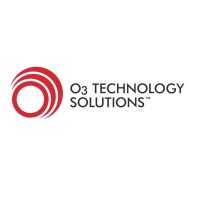Description
Responsibilities:
Continuous Integration and Deployment:
Design, implement, and maintain CI/CD pipelines to automate the software build, test, and deployment processes.
Collaborate with development teams to integrate CI/CD into the software development life cycle.
Infrastructure Automation:
Utilize infrastructure-as-code (IaC) tools to automate the provisioning, configuration, and management of infrastructure resources.
Manage and optimize cloud-based environments (e.g., AWS, Azure, or GCP) to ensure scalability, security, and cost-efficiency.
Monitoring and Logging:
Implement monitoring solutions to proactively identify and address issues in the infrastructure and applications.
Configure and manage logging systems to ensure comprehensive visibility into system performance and errors.
Collaboration and Communication:
Work closely with cross-functional teams, including developers, system administrators, and quality assurance, to facilitate collaboration and streamline processes.
Communicate effectively with team members and stakeholders to ensure alignment on DevOps initiatives and goals.
Security and Compliance:
Implement and enforce security best practices for infrastructure and applications.
Collaborate with the security team to address vulnerabilities and ensure compliance with industry standards.
Troubleshooting and Incident Response:
Provide expertise in troubleshooting and resolving issues related to infrastructure and deployments.
Participate in on-call rotation for timely response to incidents and outages.
Qualifications:
Bachelor’s degree in Computer Science, Information Technology, or a related field (or equivalent experience).
Proven experience as a DevOps Engineer or in a similar role.
Strong expertise in CI/CD tools (e.g., Jenkins, GitLab CI) and version control systems (e.g., Git).
Proficiency in scripting languages such as Python, Bash, or PowerShell.
Experience with containerization and orchestration tools (e.g., Docker, Kubernetes).
Knowledge of infrastructure automation tools (e.g., Terraform, Ansible).
Familiarity with cloud platforms and services (e.g., AWS, Azure, GCP).
Strong understanding of networking, security, and system administration.
Excellent problem-solving and communication skills.
Certifications such as AWS Certified DevOps Engineer, Microsoft Certified: Azure DevOps Engineer, or Kubernetes certifications are a plus.
Education
Bachelor's degree in Computer Science
- Posted On: 22-Oct-2024
- Experience: 5+ years of experience
- Openings: 1
- Category: DevOps Engineer
- Tenure: Flexible Position

